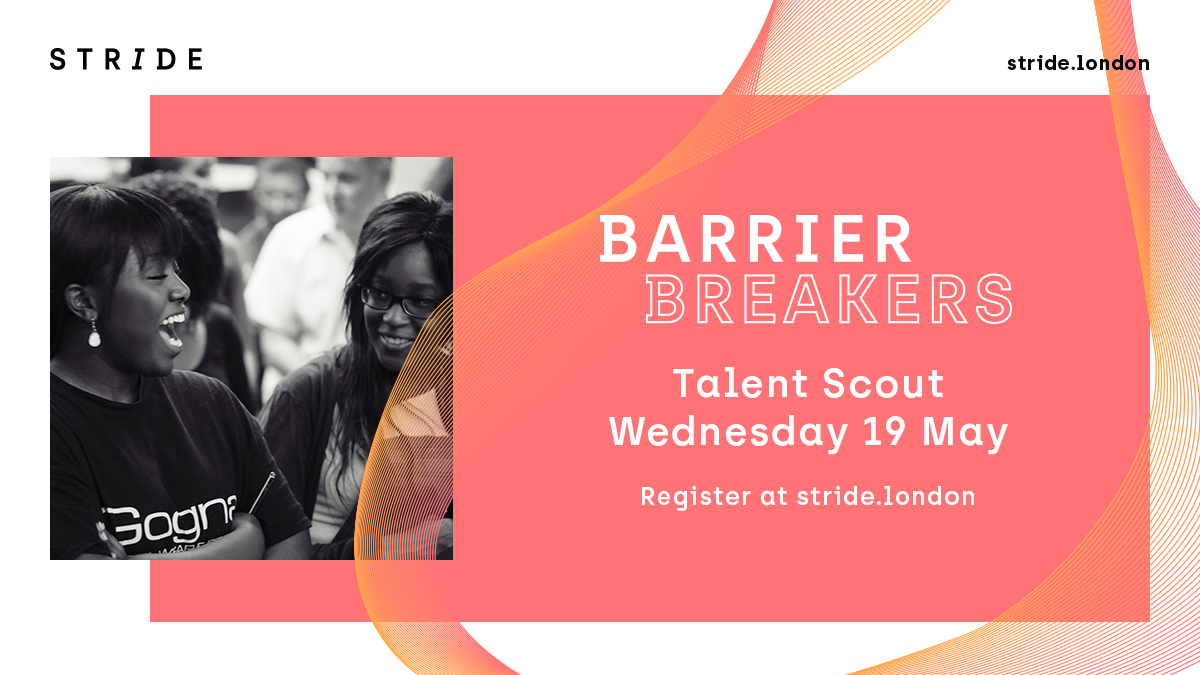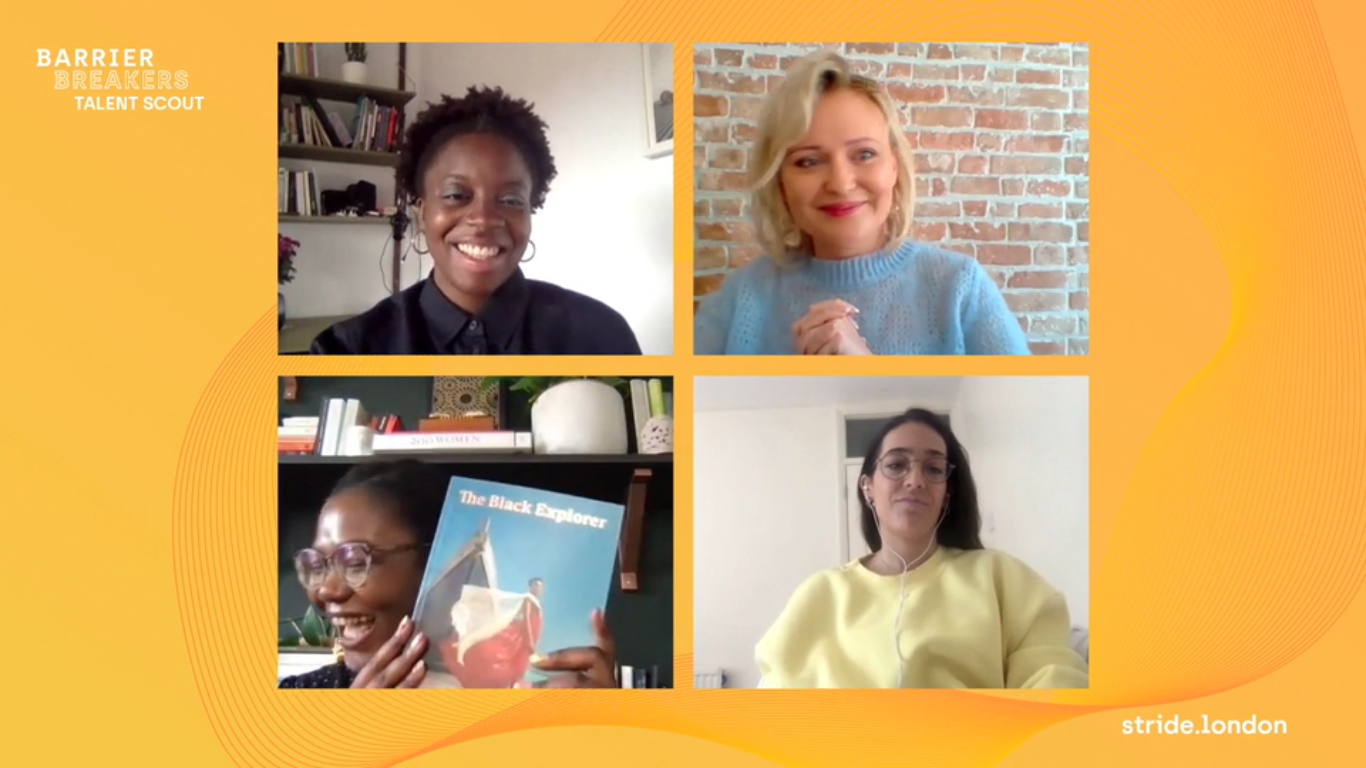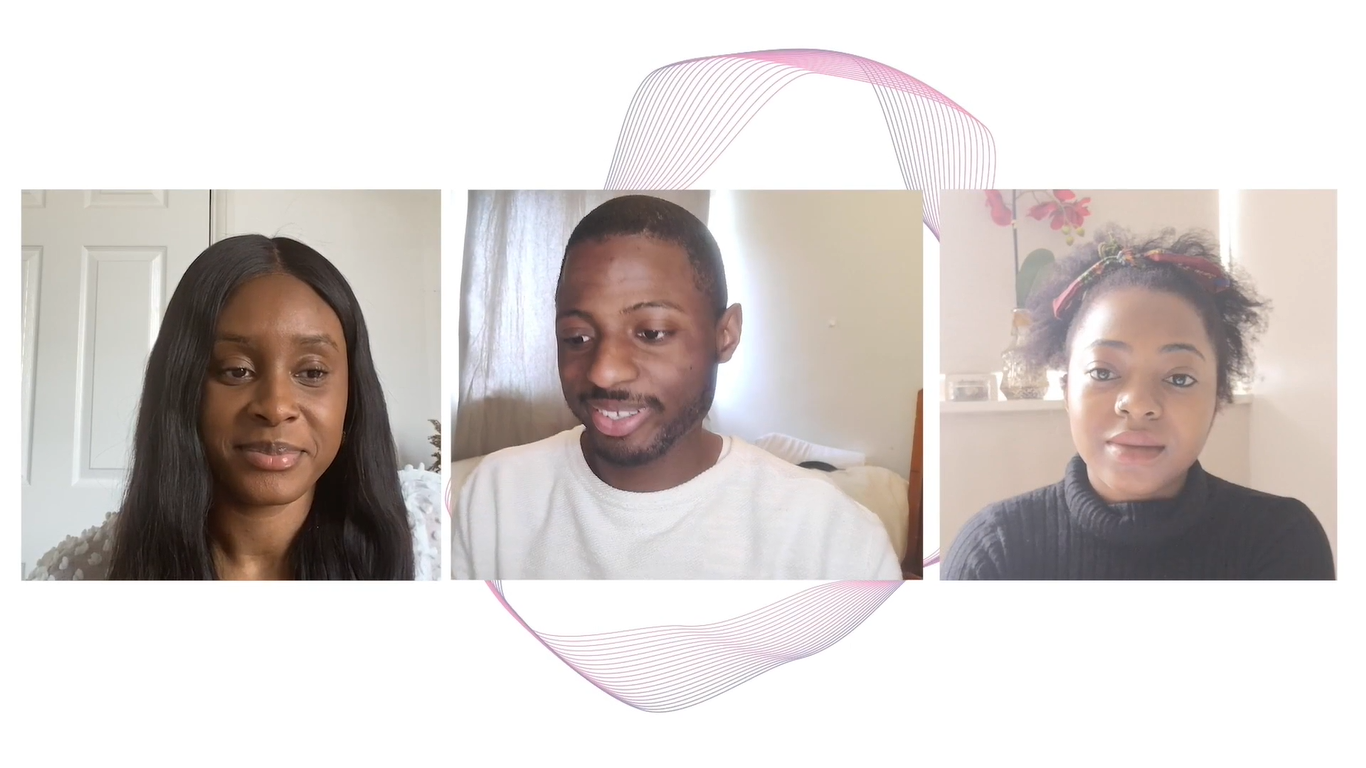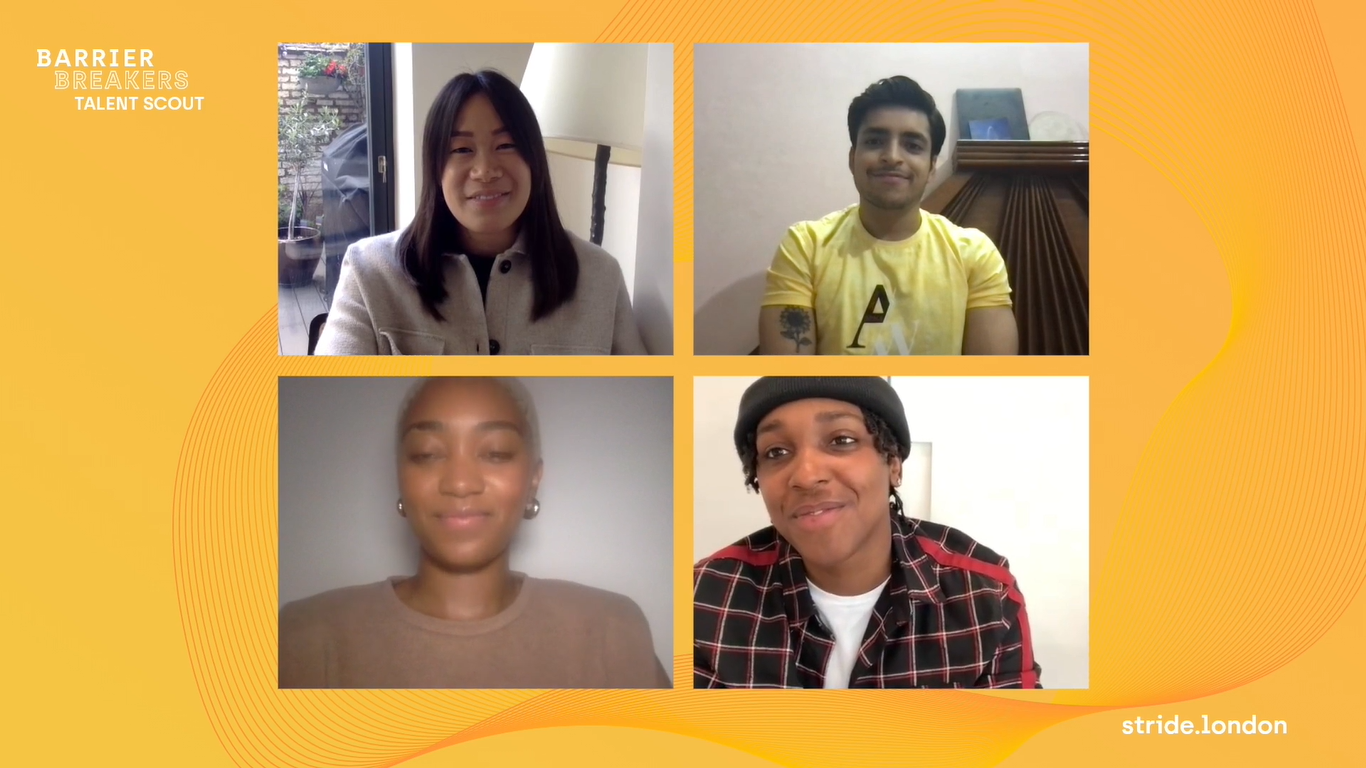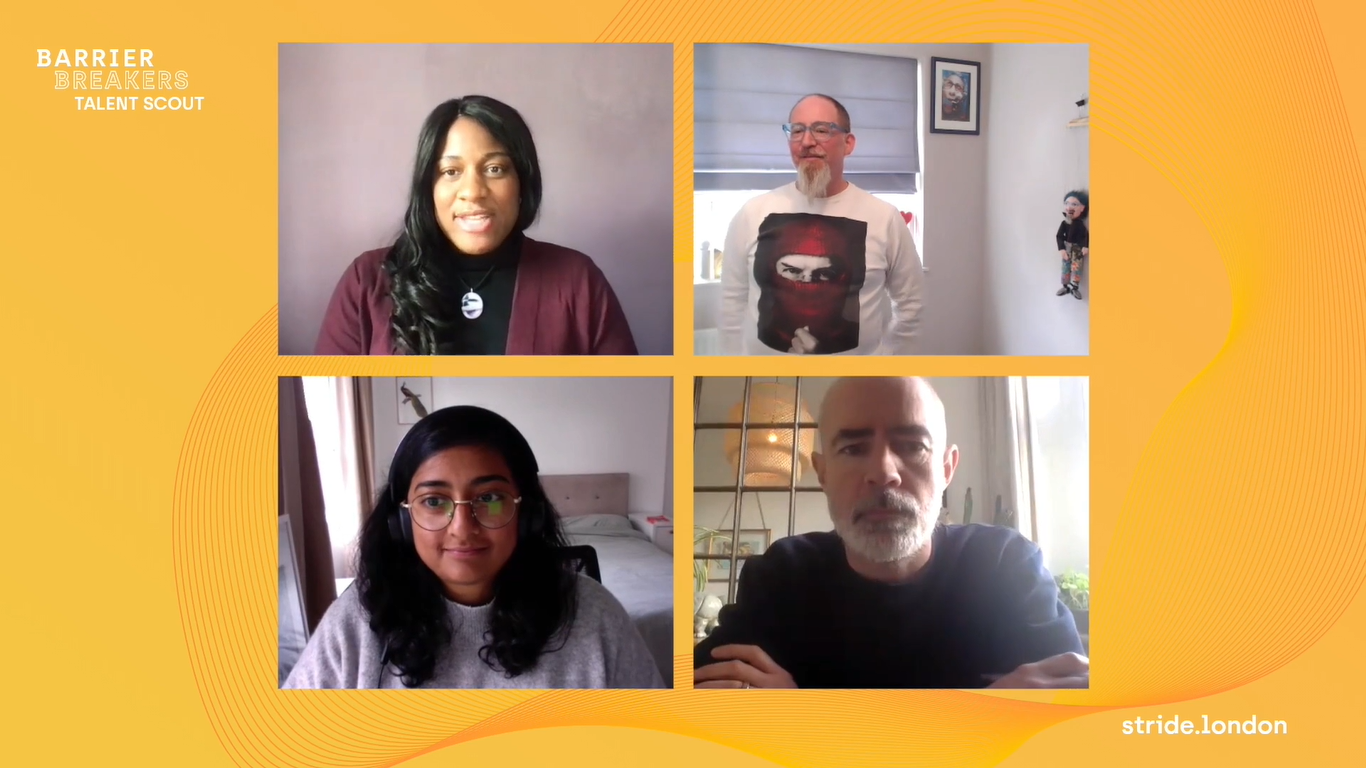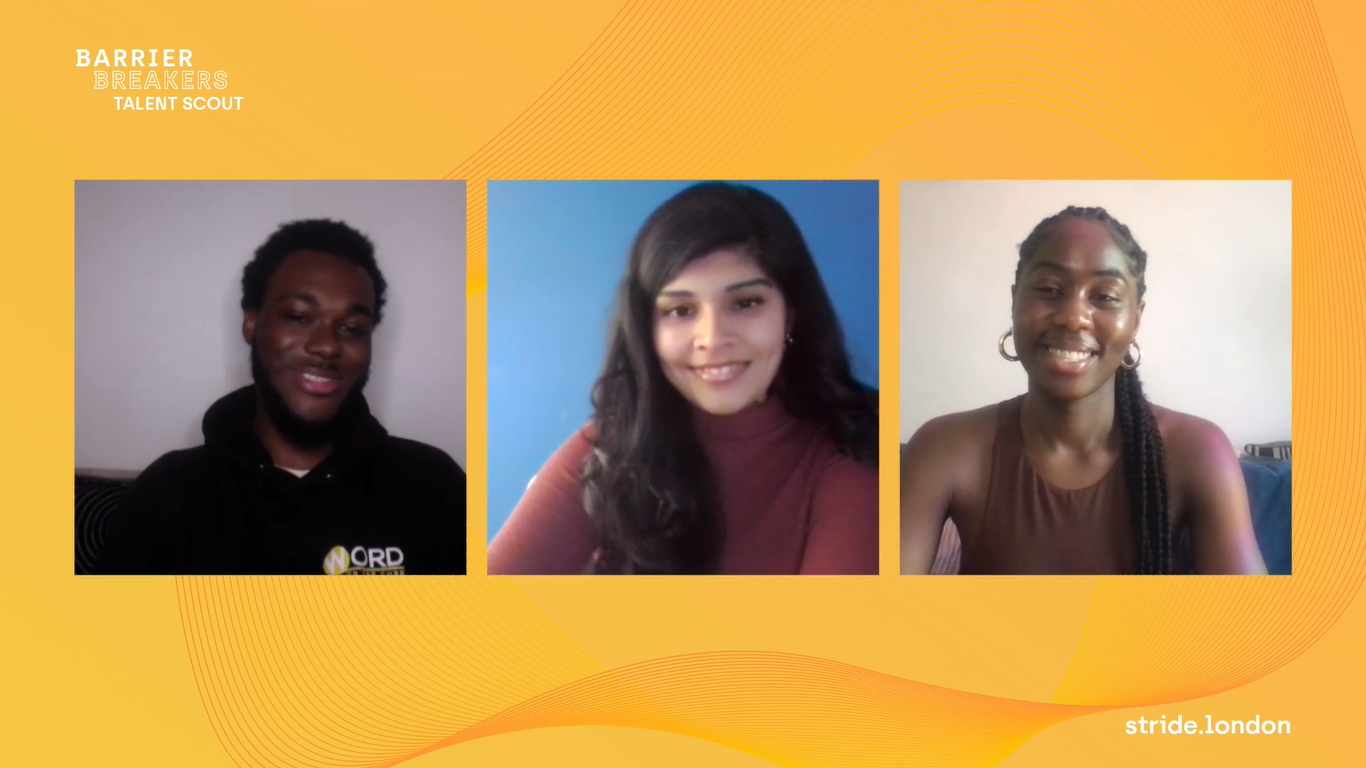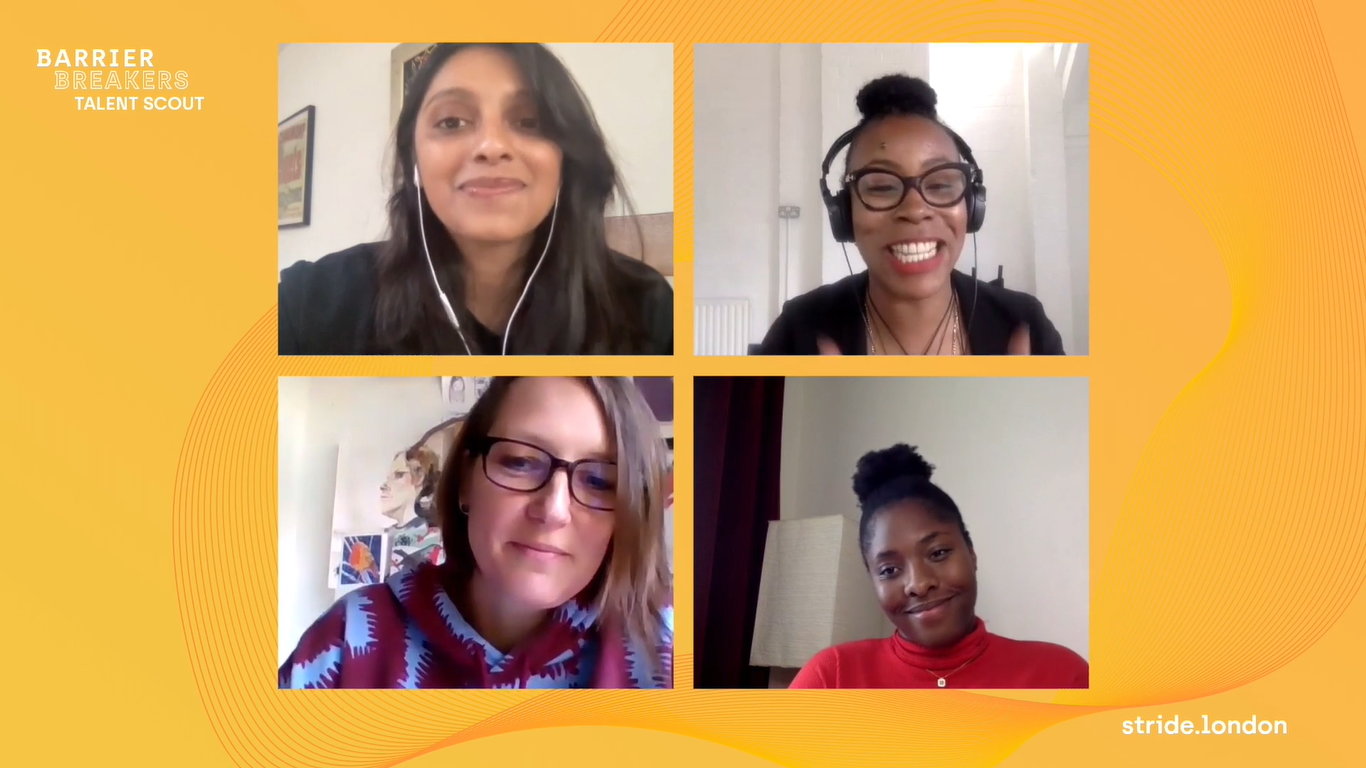Highlights from Barrier Breakers: Talent Scout
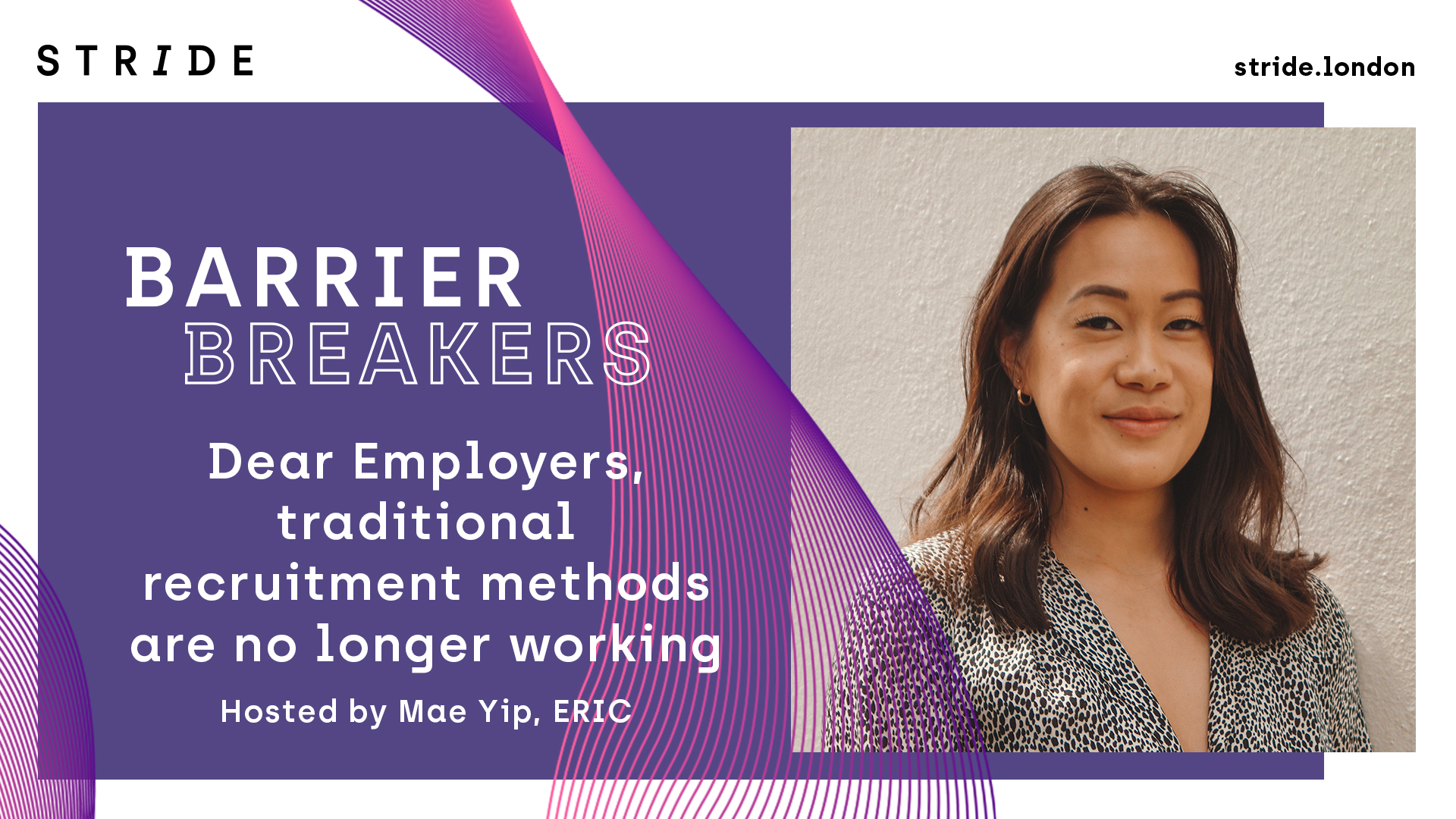
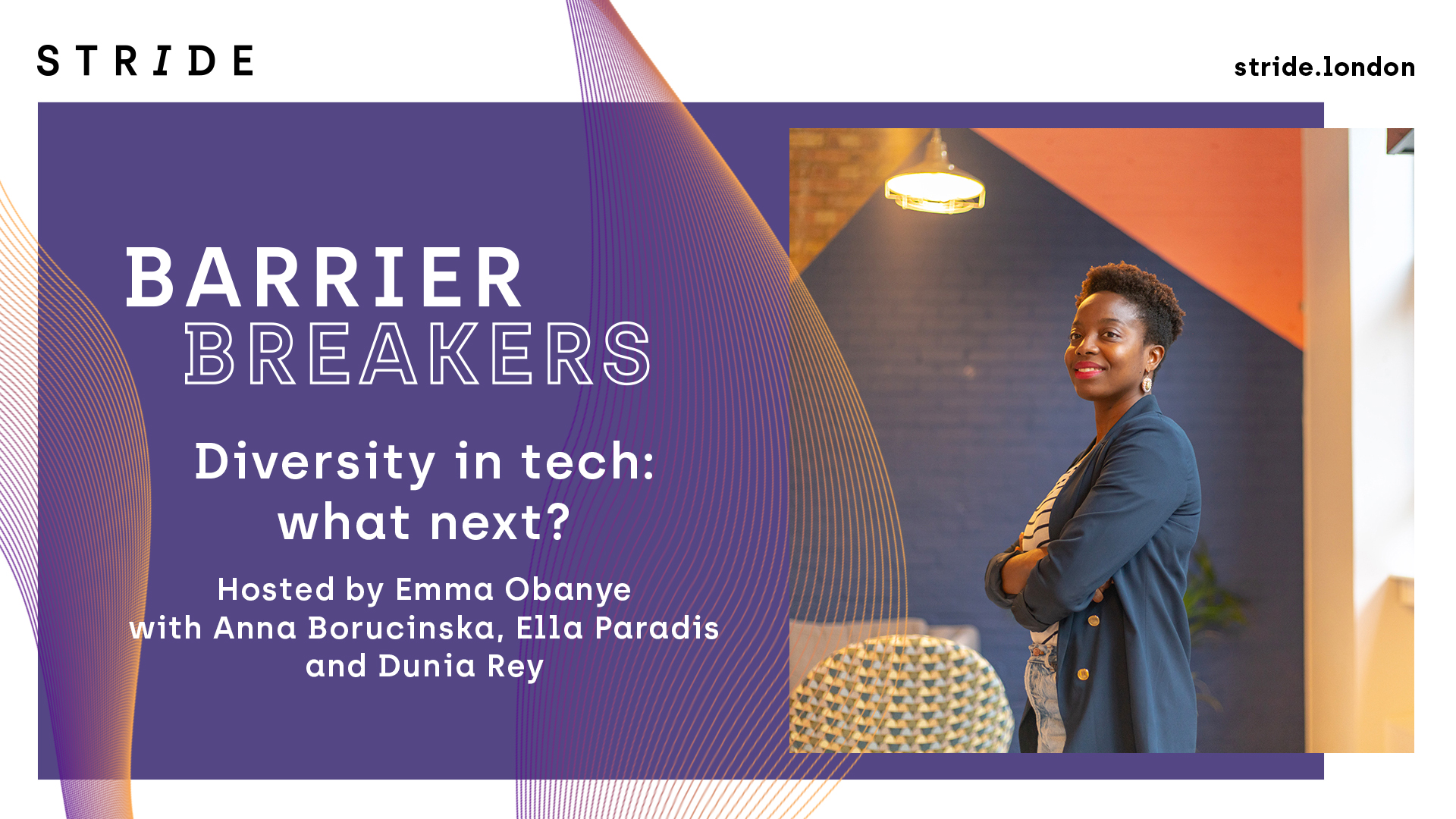
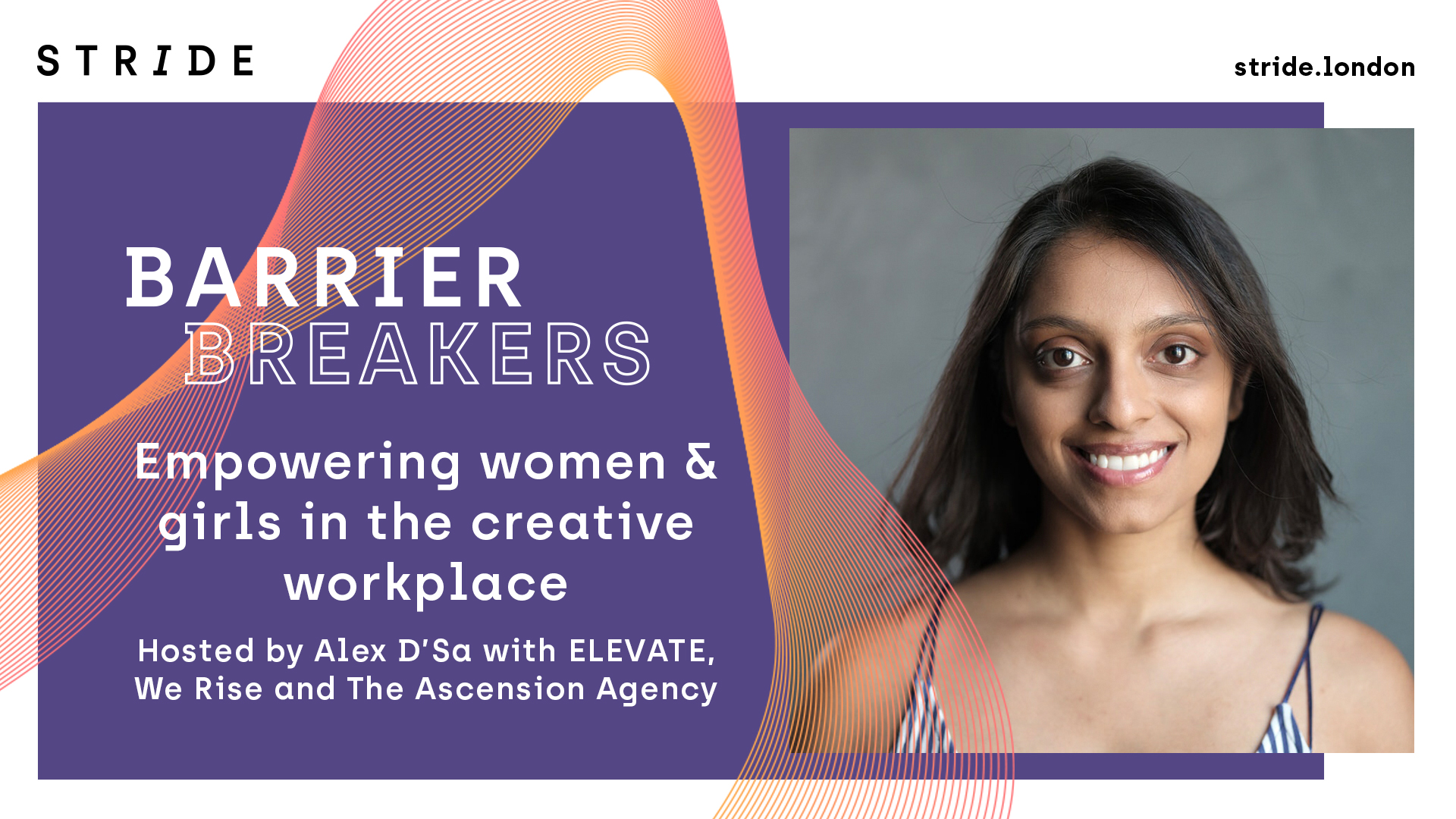
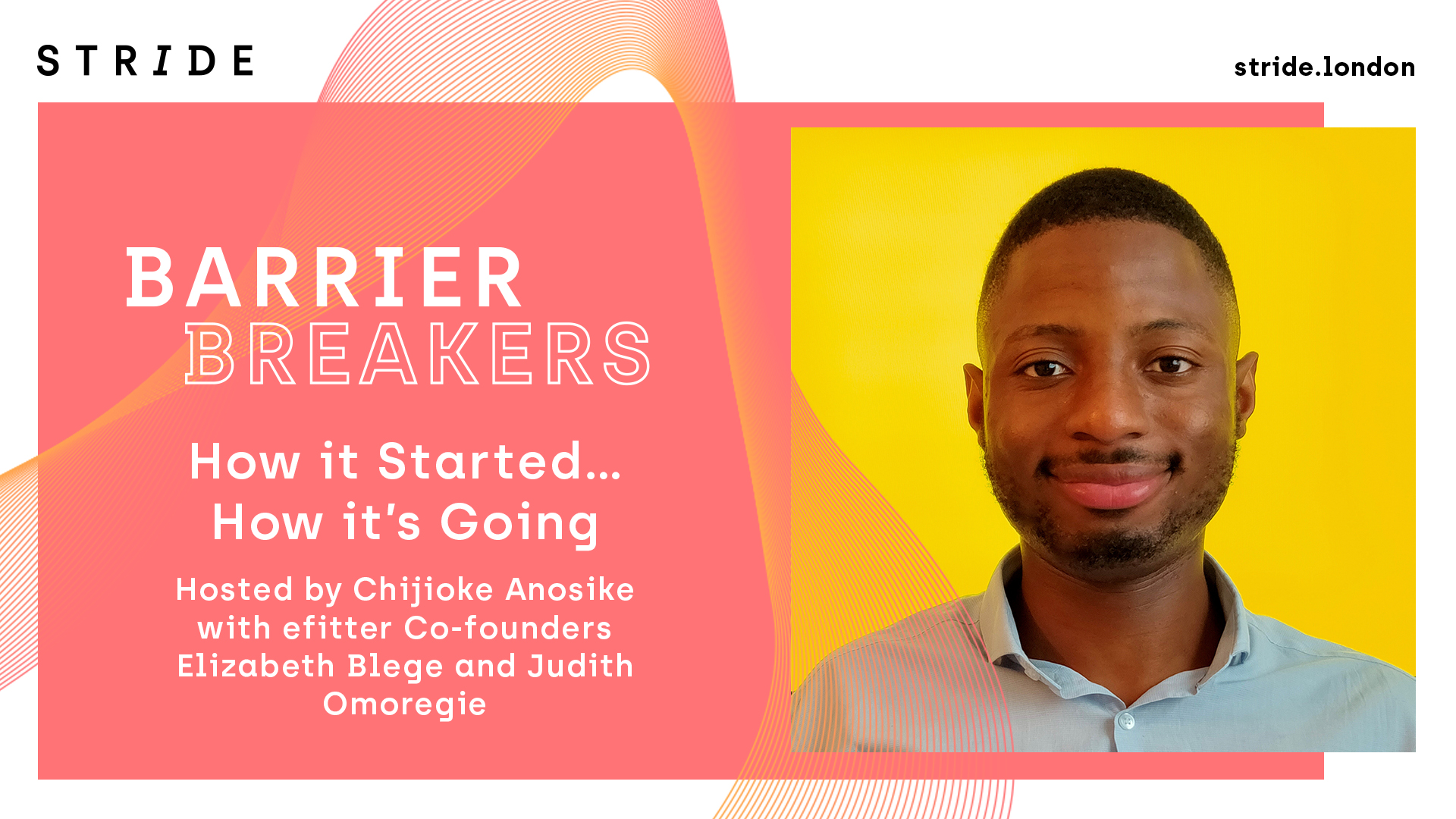
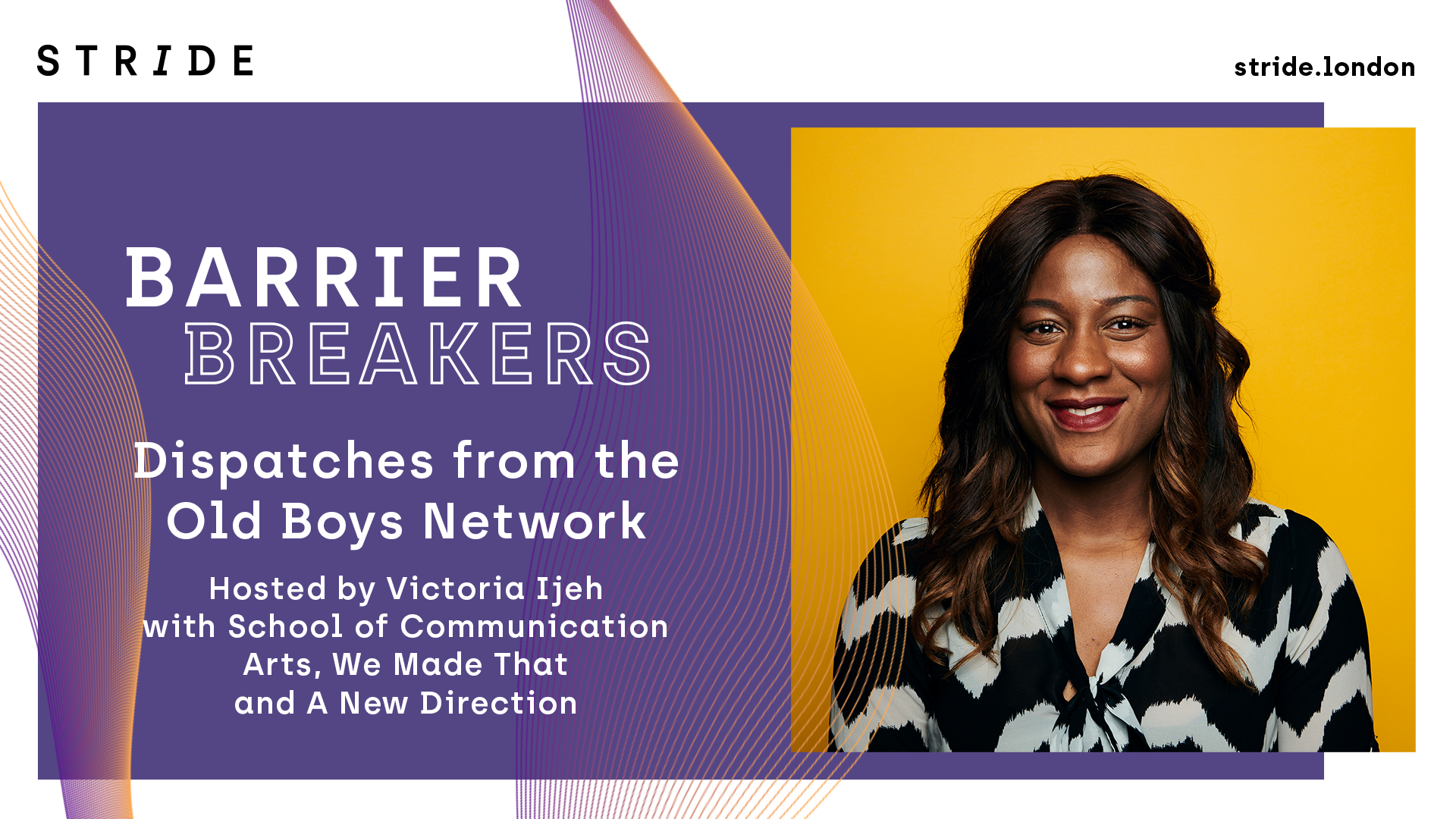
Barrier Breakers: Talent Scout saw 140 business leaders, changemakers and diverse entrepreneurs come together for a jam-packed day of keynote speeches, fireside chats and panel discussions.
Check out the highlights and revisit recordings of all of the fantastic sessions…
Apply for funding!
Stride's final round of talent development funding is open for applications until 5 August 21

Diversity in tech: what next?
The day kicked off with a panel discussion led by OneTech’s Emma Obanye. Emma was joined by Ella Paradis, Dunia Rey and Anna Borucinska – all entrepreneurs who have participated in Stride’s OneTech programme. They shared their experiences, insights on what the next chapter of the diversity in tech movement looks like and the opportunities and challenges that exist for underserved entrepreneurs.
Confidence was a key topic of discussion, with Emma stressing that entrepreneurship is mostly about working on ourselves and that as entrepreneurs, we are constantly evolving. Founder of The Black Explorer, Ella, spoke about how the coaching offered through Stride’s OneTech programme helped her develop her self worth.
I feel the tech startup scene is very performative and founders are always pitching and boasting about their great products. I am quite introverted so most of the things that hold me back in my business journey is my own fear, self doubt and paralysis in moments when I feel like I am an imposter. Working with a mentor during the coaching sessions really helped address these feelings of inadequacy.
Ella Paradis, Founder, The Black Explorer
Dunia Rey, a Senior UX Designer and entrepreneur, echoed this as she spoke of the skills she gained from OneTech. “The coaching was great for helping me build communication skills, public speaking and pitching. I might not be Elon Musk or Steve Jobs but I am still a founder because I am a normal person solving normal issues for normal people.”
LogicSock founder, Anna Borucinska, made a rallying call for startup grants for mothers launching businesses and local council funding for creches to support parents on their business journey. She also spoke about how being on Stride’s OneTech programme provided her with the vital business support she needed.
I was thrilled to be accepted on the OneTech x Foundervine Pre-Accelerator and those six weeks really helped train me. Being a founder can be very lonely and Stride gave me a community to connect with other founders, an opportunity to find a mentor and the space to access connections - these were an amazing boost.
Anna Borucinska, Founder, LogicSock
How It Started…How it’s Going
Next up was a fireside chat led by Stride Partnership Network member and co-founder of Mental Savage Book Club, Chijioke Anosike. He was joined by Elizabeth Blege and Judith Omoregie, co-founders of eFitter. They showcased success stories from across the Stride programme and looked forward to some exciting developments in the pipeline.
Judith said she joined Stride’s Create Jobs Future Startup Now programme (powered by A New Direction) “to accelerate the business growth, do product testing and gain funding to build the product.”. Elizabeth also spoke of the invaluable resources the course provided.
There were lots of practical sessions from business leaders and you had the support from the other founders too. Mentoring and pitch preparation was a highlight; my mentor was an investor and fashion tech founder so helped me refine my pitch deck.
Elizabeth Blege, Co-founder, eFitter
Dear employers, traditional recruitment methods are no longer working
ERIC’s Mae Yip was then on hand to speak to three young creatives about their career ambitions, the recruitment challenges they have faced and what the future of recruitment should look like.
ERIC marketing manager Samaksh Kalra said “Gen Z would really appreciate constructive feedback when applying for jobs, feedback on CVs and interviews prep.” Whist content creator Paige Bernard talked about the importance of building resilience against obstacles.
I advise Gen Z creatives to just keep applying for jobs despite all the obstacles, as it will make you more resilient. My mantra is rejection is redirection to something better.
Paige Bernard, Freelance content creator
Discussing the importance of creating more diverse talent pipelines, actress Laura Njoku suggested that “companies should audit their processes of recruitment” and Mae asked whether “blind applications are the way forward to help remove some bias and ensure candidates aren’t judged due to their ethnic sounding names or their background.”.
Dispatches From The Old Boys Network
Victoria Ijeh from Iconic Steps hosted a lively discussion with A New Direction, We Made That and School of Communication Arts (SCA) about increasing diversity in traditionally white male dominated sectors.
Architect Nisha Kurian shared her experiences of often being the only women of colour at several of the architecture practices she’s worked at.
As a brown face, I feel plenty of insecurities and imposter syndrome. I believe the architecture industry is systemically racist and minorities face numerous obstacles during their career with BAME staff dropping off at every step of the architect qualification process.
Nisha Kurian, Associate, We Made That
Both Oliver Benjamin from A New Direction and Marc Lewis from SCA shared their thoughts on white privilege and how to use their position of advantage to help increase inclusivity in predominantly white industries.
I understand what white male privilege looks like since I failed the education system but was still able to make a success of my life. Fortunately, I can use my white privilege to help others by mobilising my network to fund scholarships for diverse students.
Marc Lewish, Dean, School of Communication Arts
We need to check our privilege whilst realising diversity benefits everyone in society, not just minorities. White people should realise that being an ally is the least they can do; indeed it should be part of their daily working practice.
Oliver Benjamin, Director of Employment and Skills, A New Direction
Communicating effectively with underrepresented audiences
Word on The Curb’s Ndu Uchea led a session about how brands and organisations can better connect with underrepresented audiences. He was joined by Sabrina from the NHS transplant marketing team who said it was important for them to “engage BAME communities in a genuine way, which helps build trust with our audiences.”
Ndu commended the NHS and other brands like Ben & Jerrys for supporting diversity in the wake of last year’s Black Lives Matter movement and said “consumers just want honesty, so organisations need to toe that fine line between authentic inclusion and performative allyship.”
Sharing this sentiment, content creator Qoy talked about brands needing to work harder to be genuine when creating diverse campaigns.
Brands who were scrambling to find ‘diverse’ influencers following Black Lives Matter were just jumping on the bandwagon and were lazily using tokenistic minority models for diverse campaigns.
Qoy, YouTube content creator
Empowering women and girls in the creative workplace
Finally, Spendor’s Alex D’Sa hosted a discussion with three inspiring women who are actively working to empower women and girls in the creative workplace. They discussed what drives them, what they are doing to push things forward, their successes and what’s next in this sphere.
Founder of media production company The Ascension Agency, Natasha Preville and former architect and Operations Director of We Rise, Polly Waterworth both shared the importance of having mentors who championed them throughout their careers, whilst discussing male allies.
I don’t want a male ally, I want a male accomplice so we can be in the trenches together! We need to show men the benefits of gender diversity and female empowerment so they don’t see it as giving up a seat but more as making space for women.
Natasha Preville, Founder, The Ascension Agency
Alex echoed this suggesting small gestures like refusing to speak on panels unless there was a woman sharing the panel was helpful whilst Lara Grace Ilori said male employees “shouldn’t be afraid to be allies and they must stand up for the minorities in their workplace, call out discrimination and speak to management about issues.”
Sign up to our mailing list for information on future events, as well as talent development, business support and workspace opportunities that can be accessed through Stride.

This event was designed and delivered in partnership with Still Curious.
